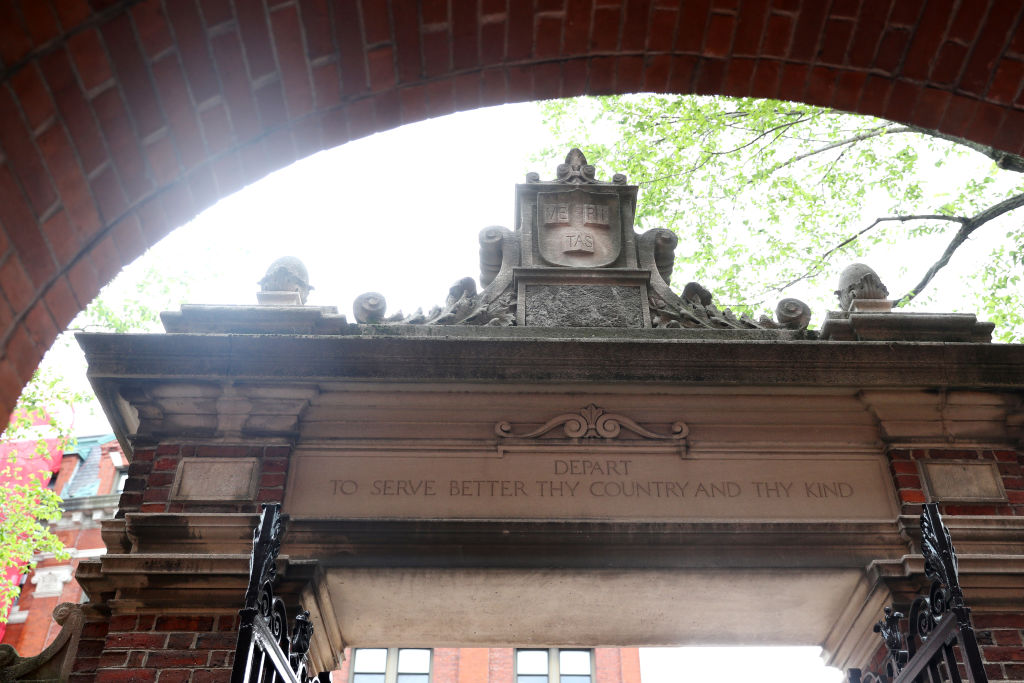
Source: PeopleImages / Getty
As the Supreme Court once again holds discussions surrounding the future of affirmative action, this is a befitting time to look back on how schools have historically treated race and gender about admissions.
While conservative groups like the Students for Fair Admissions fight to prohibit educational institutions from making a concerted effort to create space for minority students, one cannot help but call out the irony occurring: colleges have considered race in the admissions process for centuries. Only formerly, being a racial or gender minority was a disadvantage to students. The hope of a just admissions process that prioritizes diversity remains at risk.
As such, a walk down the regrettable memory lane of some of the top university’s racial and gender-segregated histories has never been timelier. Here is a look at some of the first Black women to graduate from Ivy League institutions and the circumstances surrounding their attendance.
Vera Marcus
Princeton, class of ‘72
Vera Marcus is a remarkable woman who achieved her undergraduate degree at Princeton in three years. However, her story has been underreported, underscoring the university’s resistance to having Black women on campus.
Even though Marcus received a generous scholarship to Princeton and excelled in her coursework, she was largely left out of the whole college experience. At the time, women were not allowed to enter the eating clubs – the predominant social clubs of Princeton, notorious for a selective process. It was very much a boy’s club. In an oral history interview published in Princeton’s University Archives, the academic prodigy said, “I personally never felt like the Black men and Black women at Princeton, during the time I was there, ever banded together for mutual support and consolation. I felt…they were part of the male Princeton [establishment} of the past.”
The outsider still managed to find her place on campus. She performed in the Princeton University Triangle Club, the oldest musical-comedy troupe associated with a university or college in the U.S. She participated in the school’s first Black theater group.
From the stage to the courts, Marcus went on to have a successful state government career and open her law practice in Benicia, Calif.
Lila Fenwick
Harvard Law School, class of ‘56
Lila Fenwick attended Harvard Law School (HLS) during a historic moment in education. In 1954, the U.S. Supreme Court announced the Brown v. Board of Education ruling, banning state-sanctioned school segregation because it violated the 14th Amendment. In hearing the news, the Harvard Bulletin reports that Fenwick said, “I was delirious…I knew I was going to be a lawyer when I was a little girl…It never occurred to me that there were going to be any obstacles.”
Fenwick went on to have a career as a lawyer, human rights activist, and United Nations official. The pioneer dedicated her life to defending the rights of people worldwide but received her degree from an institution that had not historically done so.
Harvard was founded in 1817 using an endowment from a one Isaac Royall, Jr, who had built this wealth on the backs of his slaves. The institution has made progress in admitting Black people and women since then. Its student population is currently 50.5 percent female and 6.56 percent of its students are Black. However, with a slave owner funding the school’s early years, its foundation is rooted in one of the most horrific crimes against Black people – a fact many alumni cannot forget.
In 2000, HLS held its first reunion specifically for its Black graduates. David B. Wilkins (class of ’77) told The Crimson that some attendees arrived with mixed emotions. “Many of the alumni made a long emotional journey,” said Wilkins. “For many of the graduates, HLS was not a pleasant memory. Many have not been back since they graduated.”

Source: Maddie Meyer / Getty
Otelia Cromwell
Yale, class of ‘26
Otelia Cromwell was the first Black woman to receive a Ph.D. in English from Yale’s graduate program. Yale accepted women into their graduate programs in 1892, but it wasn’t until 1969 that they began admitting women to their undergraduate program. By 1982, the Yale Black student population comprised 40 percent more women than men, causing the students to wonder if the university was attempting to “kill two birds with one stone,” according to the Yale.edu self-published timeline of women at their institution.
Before the de-segregation of universities and colleges, Yale was reportedly staunchly unwelcoming to Black women. Curtis Patton, one of Yale’s first Black Professors, explained to Yale News that in 1933, one Black woman, whose name is not on record, was admitted to Yale’s School of Nursing and, one year later, forced to resign. Around the same time, Patton states that another student was told by an admissions officer that the school had an “unwritten policy” on not admitting Black students. It took the NAACP sending letters threatening to reveal the policy to the public for Yale to repeal it.
Despite attending Yale years before integration, while the university was still unofficially unwelcoming to Black students, Cromwell went on to be a highly respected scholar and professor of English at Miner Teachers College (today known as the University of District of Columbia).









